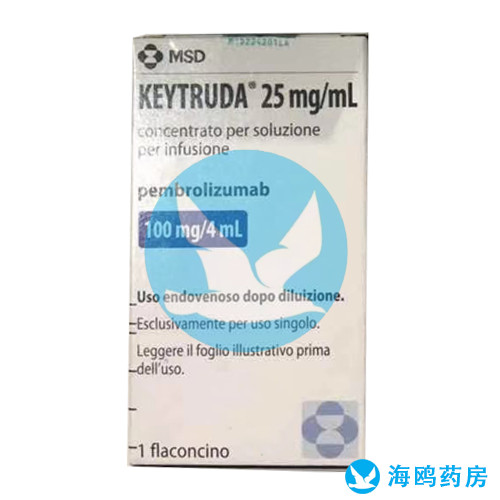Evorpacept ± Pembrolizumab/Trastuzumab Appears Safe for Advanced Solid Tumors
The safety profile of evorpacept with or without pembrolizumab (Keytruda) or trastuzumab (Herceptin) supports the use of the regimen in patients with advanced solid tumors, according to findings from the dose-escalation and dose-expansion phase 1 ASPEN-01 study (NCT03013218) published in Lancet Oncology.

The study had a median follow up of 29.1 months in the monotherapy cohort, 27.0 months in the evorpacept/pembrolizumab cohort, and 32.7 months in the evorpacept/trastuzumab cohort. Seven percent of patients who received evorpacept alone experienced dose-limiting toxicities in the first cycle. The maximum administered dose of evorpacept was 10 mg/kg once weekly or 30 mg/kg once every other week, although no maximum tolerated dose was reached.
Of the 15 response-evaluable patients in the dose-escalation phase who received single-agent evorpacept, stable disease was the best response in 27% of patients. Overall responses for the dose-expansion cohort were observed in 20.0% (95% CI, 5.7%-43.7%) of patients with head and neck squamous cell carcinoma (HNSCC) in the evorpacept/pembrolizumab cohort, 5.0% (95% CI, 0.1%-24.9%) of patients with non–small cell lung cancer (NSCLC) in the evorpacept/pembrolizumab cohort, and 21.1% (95% CI, 6.1%-45.6%) of patients with gastric or gastroesophageal junction cancer in the evorpacept/trastuzumab cohort.
“This report is the first clinical characterisation of an engineered CD47 myeloidcheckpoint inhibitor protein containing an inactive Fc region to minimise haematological toxicity,” the investigators wrote. “Evorpacept showed a favourable safety profile, with no maximum tolerated dose reached when administered as a single agent or in combination with standard regimens of pembrolizumab and trastuzumab.”
Study enrollment required patients to be aged 18 years or older with a diagnosis of advanced or metastatic solid tumor malignancies with no available standard therapy. Additionally, patients were required to have measurable or unmeasurable disease according to RECIST 1.1 criteria and an ECOG performance status of 0 or 1.
Patients received either 0.3, 1, 3, or 10 mg/kg of evorpacept intravenously once weekly in 21-day cycles or at a dose of 30 mg/kg once every other week in 28-day cycles. In one cohort, evorpacept was combined with 200 mg of pembrolizumab administered intravenously once every 3 weeks and in another an initial dose of trastuzumab was administered at 8 mg/kg intravenously followed by a dose of 6 mg/kg once every 3 weeks.
After the maximum administered dose was reached, patients with second-line or later HNSCC, NSCLC, and HER2positive gastric or gastroesophageal junction cancer were then enrolled into 3 parallel dose-expansion cohorts.
The study’s primary end point was determining the maximum tolerated dose of evorpacept as both a monotherapy and in combination with pembrolizumab and trastuzumab. Secondary end points included determining the safety and antitumor activity of evorpacept.
A total of 110 patients with advanced solid tumors were enrolled in the phase 1 study between March 6, 2017, and February 21, 2019, of whom 28 received evorpacept alone, 52 received evorpacept plus pembrolizumab, and 30 received evorpacept plus trastuzumab.
In the evorpacept group, the median age was 67 years, and most patients were female (57%), White (96%), and had an ECOG performance status of 1 (79%). In the pembrolizumab group, the median age was 61 years, and most patients were male (56%), White (65%), and had an ECOG score of 1 (65%). In the trastuzumab group, the median age was 60 years, and most patients were male (70%), Asian (47%), and had an ECOG score of 1 (63%).
In the overall safety analysis, 5% of patients discontinued treatment due to adverse effects (AEs), and 4% of patients required dose modifications due to treatment-related AEs (TRAEs).
At least 1 AEs was reported in 93% of patients in the evorpacept group, 100% of patients in the pembrolizumab group, and 97% of patients in the trastuzumab group. Evorpacept-related serious AEs were reported in 14%, 8%, and 3% of patients in the evorpacept, pembrolizumab, and trastuzumab groups, respectively.
Common grade 3 or higher TRAEs were thrombocytopenia in the evorpacept group (7%), pembrolizumab group (4%), and trastuzumab group (7%), as well as neutropenia in the trastuzumab group (7%).
“Evorpacept is a promising a new approach to CD47-targeted therapies. This drug has received fasttrack designation by the US Food and Drug Administration for development in patients with HNSCC and HER2postive gastric or gastroesophageal junction cancer,” the investigators wrote.
https://www.cancernetwork.com/view/evorpacept-pembrolizumab-trastuzumab-appears-safe-for-advanced-solid-tumors
Disclaimer:《Evorpacept ± Pembrolizumab/Trastuzumab Appears Safe for Advanced Solid Tumors》Edited and sorted by Seagull Pharmacy's editors. Please contact us in time if there is any infringement. In addition, the suggestions for drug usage, dosage and disease mentioned in the article are only for medical staff's reference, and can not be used as any basis for medication!